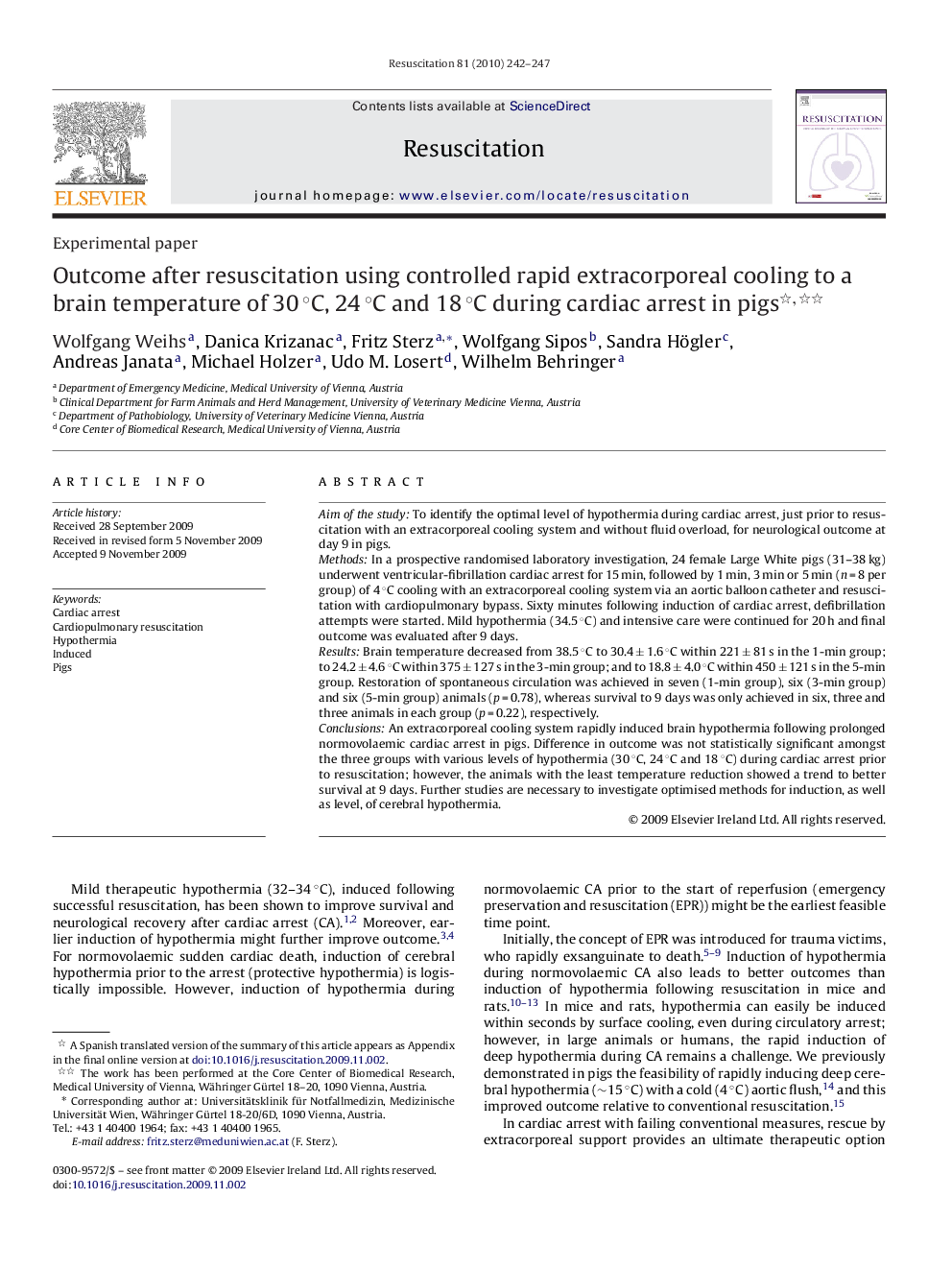| کد مقاله | کد نشریه | سال انتشار | مقاله انگلیسی | نسخه تمام متن |
|---|---|---|---|---|
| 3009833 | 1181499 | 2010 | 6 صفحه PDF | دانلود رایگان |

Aim of the studyTo identify the optimal level of hypothermia during cardiac arrest, just prior to resuscitation with an extracorporeal cooling system and without fluid overload, for neurological outcome at day 9 in pigs.MethodsIn a prospective randomised laboratory investigation, 24 female Large White pigs (31–38 kg) underwent ventricular-fibrillation cardiac arrest for 15 min, followed by 1 min, 3 min or 5 min (n = 8 per group) of 4 °C cooling with an extracorporeal cooling system via an aortic balloon catheter and resuscitation with cardiopulmonary bypass. Sixty minutes following induction of cardiac arrest, defibrillation attempts were started. Mild hypothermia (34.5 °C) and intensive care were continued for 20 h and final outcome was evaluated after 9 days.ResultsBrain temperature decreased from 38.5 °C to 30.4 ± 1.6 °C within 221 ± 81 s in the 1-min group; to 24.2 ± 4.6 °C within 375 ± 127 s in the 3-min group; and to 18.8 ± 4.0 °C within 450 ± 121 s in the 5-min group. Restoration of spontaneous circulation was achieved in seven (1-min group), six (3-min group) and six (5-min group) animals (p = 0.78), whereas survival to 9 days was only achieved in six, three and three animals in each group (p = 0.22), respectively.ConclusionsAn extracorporeal cooling system rapidly induced brain hypothermia following prolonged normovolaemic cardiac arrest in pigs. Difference in outcome was not statistically significant amongst the three groups with various levels of hypothermia (30 °C, 24 °C and 18 °C) during cardiac arrest prior to resuscitation; however, the animals with the least temperature reduction showed a trend to better survival at 9 days. Further studies are necessary to investigate optimised methods for induction, as well as level, of cerebral hypothermia.
Journal: Resuscitation - Volume 81, Issue 2, February 2010, Pages 242–247